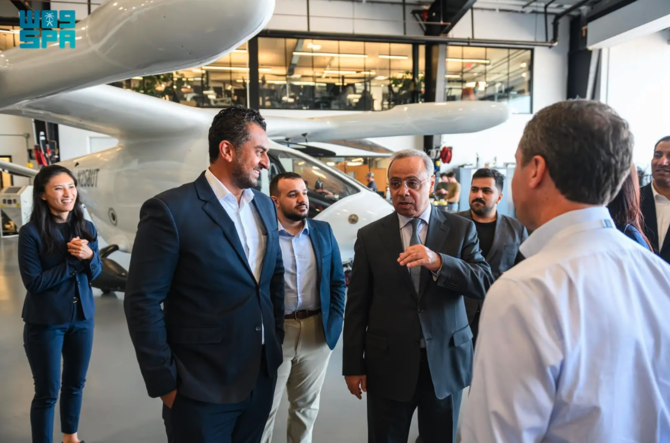RIYADH: Advanced air mobility is on track to transform the transportation, tourism, and health care systems in Saudi Arabia and across the world, a top aviation official has claimed.
Abdulaziz Al-Duailej, president of the General Authority of Civil Aviation, said that the Kingdom is committed to a global leadership role in the field, according to a statement
He was speaking during the International Civil Aviation Organization Advanced Air Mobility Symposium taking place in Montreal, Canada, from Sept. 9 to 12.
In 2023, the industry’s market value reached $9.7 billion, with projections forecasting a climb to $50 billion by 2032. This corresponds with over 200 cities in 57 countries planning to implement this technology, necessitating a unified global approach in regulation, technology, and investment.
“This field is vital for addressing climate change, offering low-emission alternatives that can significantly reduce carbon footprints,” Al-Duailej said.
“International collaboration is crucial for advancing this technology. It requires coordination between industries and governments to ensure safety and drive innovation,” he added. “In the Kingdom, we are accelerating these technologies, as seen with the air taxi trials in NEOM and during last year’s Hajj season.”
The GACA president went on to say: “Today, we’re on the brink of a remarkable future in innovation and creativity. The choices we make now will shape the world for generations.”
During his visit, Al-Duailej toured a BETA Technologies factory in South Burlington, Vermont, along with a delegation of officials from GACA, the Ministry of Investment, the Public Investment Fund, and the Ministry of Industry and Mineral Resources, as well as representatives from local private-sector companies like NEOM and Saudia Aerospace Engineering Industries.
BETA Technologies specializes in the production of electric, vertical take-off and landing aircraft.
The delegation inspected the production lines for advanced air mobility technologies, the latest infrastructure used by the factory, and operating charging stations.
They also visited the firm’s research and development centers, where they were briefed on the latest enabling technologies used in carbon-free manufacturing and production, as well as the engines that rely on charging cubes, which reduce operating costs and carbon emissions. These include the vertical take-off and landing aircraft and the fully electric models for vertical and conventional take-off and landing.
The GACA delegation’s visit is part of the Kingdom’s endeavors to reaffirm its commitment to enabling advanced air mobility technologies and sustainable innovations as outlined in the advanced air mobility roadmap launched by the authority earlier this year.
It also aims to strengthen cooperation and build partnerships with leading companies in the civil aviation sector, explore opportunities for exchanging expertise in the field, pursue the transfer and localization of advanced aviation technologies, and enhance research, development, and innovation cooperation.
















